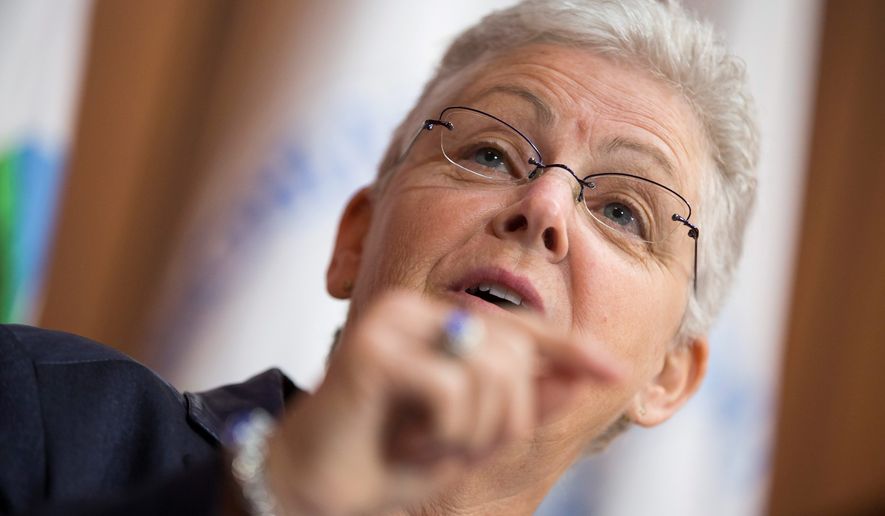OPINION:
Maybe common sense isn’t quite graveyard dead after all. Following a week in which it altered the clear legislative meaning of Obamacare and redefined marriage to suit the whims of the 3.8 percent, further damaging the Constitution twice, the Supreme Court showed on Monday that maybe it understands there’s no such thing as a free lunch.
The misunderstanding belongs to the Environmental Protection Agency, which had felt entitled to ignore the costs of implementing its air pollution rule. The justices reminded the rule-writers on the Potomac that when they dream up ways control the land, sea and air, someone has to pay for it.
In Michigan v. Environmental Protection Agency, 23 states joined with utility companies to contest new EPA rules that would set limits on air pollutants emitted by coal- and oil-fired plants, such as mercury, arsenic and other toxic gases. Meeting the new standards would drive up the cost of electricity over wide stretches of the nation. The high court didn’t buy the agency’s argument that the regulations are “appropriate and necessary,” ruling 5 to 4 that the EPA failed to factor in the compliance costs.
In a 17-page majority ruling, Justice Antonin Scalia wrote that ” ’Appropriate and necessary’ is a capacious phrase. Read naturally against the backdrop of established administrative law, this phrase plainly encompasses cost. It is not rational, never mind ’appropriate,’ to impose billions of dollars in economic costs in return for a few dollars in health or environmental benefits.”
Congressional Republicans hailed the ruling as an acknowledgment that the purse of the American taxpayer has a bottom. “The Supreme Court’s decision today vindicates the House’s legislative actions to rein in bureaucratic overreach and institute some common sense in rulemaking,” said House Majority Leader Kevin McCarthy of California.
The EPA had estimated that the cost of implementing the new regulations would be $9.6 billion, while the benefits of reducing the pollutants would be in the range of $4 to $6 million. That’s some range, one that would impress an ambitious snake-oil salesman. The easily impressed Justice Elena Kagan, dissenting, wrote that the “EPA knew … it would thoroughly consider the cost-effectiveness of emissions standards later on.” As Wimpy might tell Pop-eye, “I’ll gladly pay you Tuesday for a hamburger today.”
But Tuesday, or whenever the agency gets around to looking at the price tag on its rules, could be too late. Forcing industry to hand over a blank check to pay for federal mandates of any sort is nonsense. When the United States is more than $18 trillion in debt, someone had to take up the EPA’s credit card, and we’re grateful to the Supreme Court for doing it. The financial meltdown in Greece is a preview of the unpleasant consequences of such profligacy.
The EPA may attempt to rewrite its rule before the case returns to a lower court, but some of the damage has already been done. Many utilities had begun complying with the regulations in anticipation of the emission standards implementation, and consumers are already feeling the pinch.
Even as gasoline prices fell by nearly 39 percent in 2014, the U.S. Energy Information Administration reported that electricity costs for residential customers rose more than 3 percent, and they are expected to increase nearly 5 percent more this summer. Clean air is important, but so is being able to afford to keep the lights turned on.




Please read our comment policy before commenting.